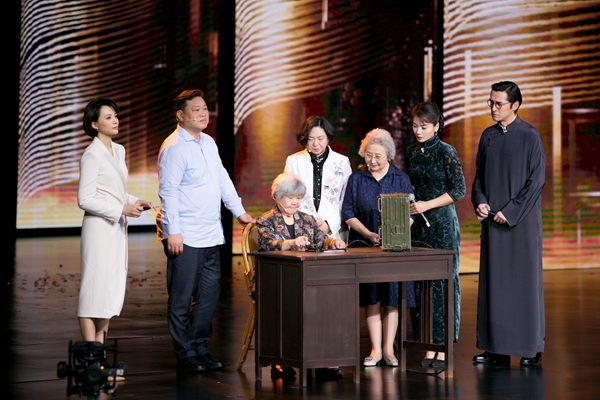Reframing the classics
By Wang Kaihao | China Daily | Updated: 2019-11-07 08:29

"Whenever an important anniversary for New China comes around, TV producers usually prefer to make documentaries or host galas to celebrate them," Xu Wenguang, deputy director of the CCTV 1, says. "However, the extraordinary journey that our country has gone through needs to be portrayed with more creativity on screen to let the old-time classics live on in today's society."
Even if they have seen these works many times, Chinese viewers born in the 1950s or '60s may still be easily touched by these sentimental moments in the programs recalling revolutionary years.
In The Eternal Wave, a 1958 film, Li Xia, a Communist intelligence agent based in Shanghai during the Chinese Civil War (1946-49), calmly sends his last report and a farewell message by telegraph back to the revolutionary hub in Yan'an, Shaanxi province-even though he knows he has been exposed and will be captured by the Kuomintang within a few minutes.
Yang Zirong from The Taking of the Tiger Mountain, a 1970s film shot in the form of a Peking Opera, was indisputably a superhero in many people's eyes a few decades ago when he sidestepped constant suspicion from his enemies but skillfully solved a dilemma. Adapted from the 1957 novel Tracks in the Snowy Forest and set in Northeast China, the story follows the adventure of a People's Liberation Army soldier as he goes undercover to crush a group of bandits from the inside.
"The stories are just there," Guo Tong, producer of China in Stories, says. "They cannot be left as pearls buried in the dust.
"People's admiration for heroes, patriotism and the pursuit of a great story never change, but the ways to express them do," he says. "There's a gap between these classics and acceptance from the generations of viewers born after 1990 or 2000."
























